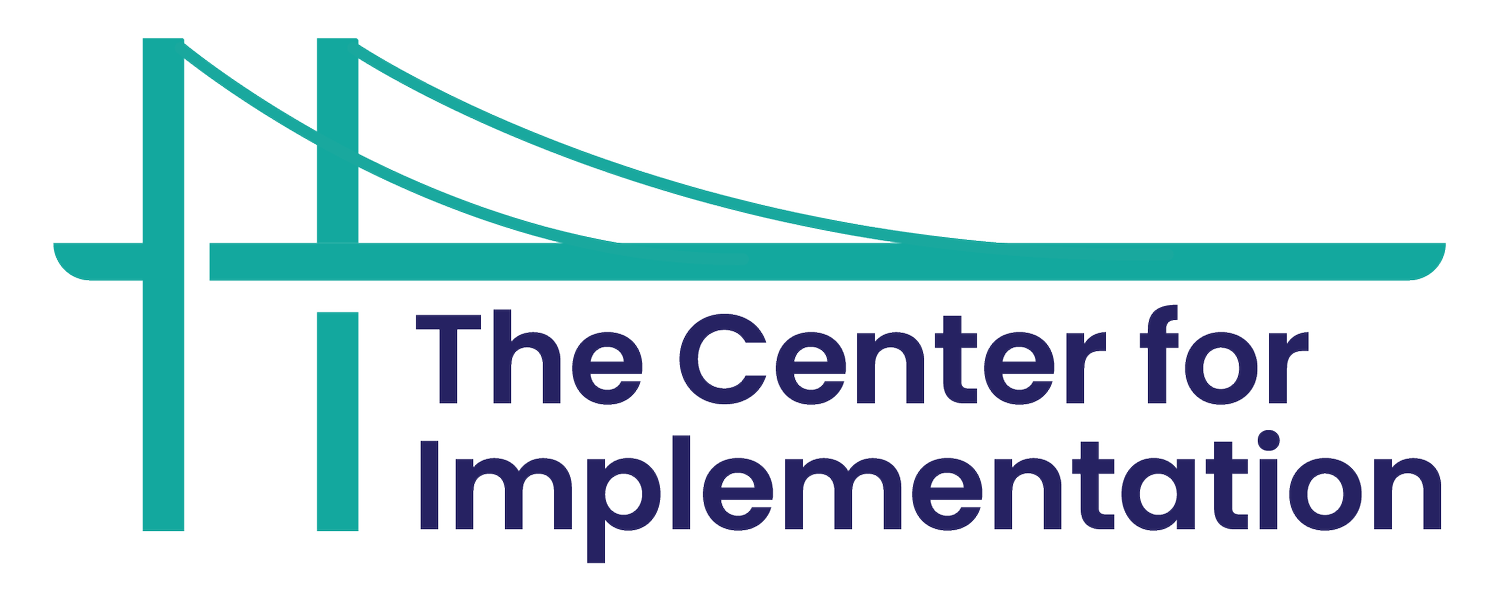Evidence-based System for Innovation Supports (EBSIS)
Evidence-based system for implementation supports (EBSIS) is a framework for supporting the implementation support practitioner and implementation teams. This framework highlights the need for different types of supports. This is true at the implementation team level and for implementation support practitioners. These four supports are:
Tools – having access to paper-based and online tools that they can use to help facilitate conversations, enhance planning, and navigate challenges.
Training – to provide the foundational knowledge and skills in implementation, science, and other relevant areas
Coaching or technical assistance – ideally more experienced people to turn to for advice, support, and feedback as they navigate unexpected challenges and implementation.
An assessment of implementation quality – when sites implement new programs, we want to know whether they are implementing them with high-quality (for example, with fidelity). Similarly, we want to know whether implementation support practitioners are providing high-quality implementation supports. Imagine how we could enhance our supports if there were implementation quality metrics that were being collected as implementation support practitioners provided support.
🔍 Find me in Implementation, Spread, and Scale
Image specifications
Image adapted from “Toward an evidence-based system for innovation support for implementing innovations with quality: Tools, training, technical assistance, and quality assurance/quality improvement” by Abraham Wandersman, Victoria H. Chien, and Jason Katz
Image concept and development by Dr. Julia E. Moore
Image design by Valentina Gastaldo
How to cite this image (APA Style)
Evidence-based System for Innovation Supports (EBSIS). Adapted from Wandersman, A., Chien, V. H., & Katz, J. (2012). Toward an evidence-based system for innovation support for implementing innovations with quality: Tools, training, technical assistance, and quality assurance/quality improvement. American Journal of Community Psychology, 50(3-4), 445-459. https://doi.org/10.1007/s10464-012-9509-7. Image adapted by The Center for Implementation, © 2023. Version: V2024.01. https://thecenterforimplementation.com/toolbox/ebsis
Translations
This image is available in the following languages:
-
Das evidenzbasierte System für Implementierungsunterstützung (EBSIS) ist ein Framework zur Unterstützung von Implementation Support Practitioners und Implementierungsteams. Dieses Framework hebt die Notwendigkeit hervor, verschiedenen Arten von Unterstützung bereitzustellen. Dies gilt sowohl für das Implementierungsteam als auch für die die Implementation Support Practitioners. Diese vier Unterstützungsarten sind:
📥 Bild herunterladen: Evidenzbasiertes System für Implementierungsunterstützung (EBSIS)
Übersetzung auf Deutsch durch Lisa Kästner, Sonja Baumann und Franziska Zúñiga, Pflegewissenschaft, Department Public Health, Universität Basel; Ursina Wälchli, Saskia Oesch und Rahel Naef, Institut für Implementation Science in Health Care, Universität Zürich; und Thekla Brunkert, Fakultät für Gesundheitswissenschaften und Medizin, Universität Luzern, Schweiz

